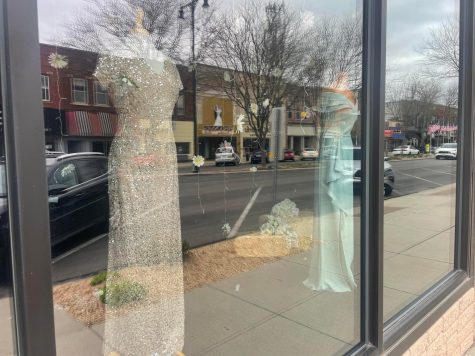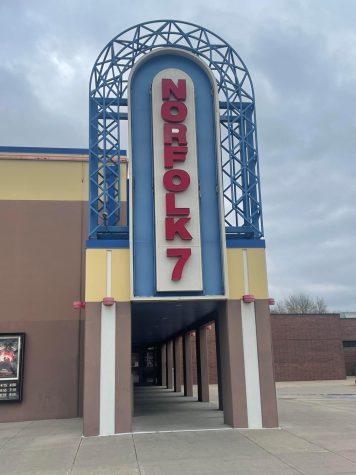El Salvador’s Fight Against Gold Mine Will Be Decided In D.C.
October 25, 2014
MCT NEWSFEATURES
SAN ISIDRO, El Salvador — Somewhere trapped in the earth below Francisco Pineda’s feet are an estimated 1.4 million ounces of gold, and he wants the ore to remain there.
He doesn’t want an Australian mining company to extract the metal.
“What will happen with the water? To separate the gold and silver, they’ll use cyanide. This will either filter into the water table or go into the river,” said Pineda, a stocky agronomist and environmental activist.
Those who share Pineda’s views don’t care if El Salvador remains the proverbial beggar seated on a bench of gold. They say their densely populated nation cannot absorb environmental distress from mining.
Yet the choice is not theirs.
The fate of the El Dorado gold mine won’t be resolved anywhere near this tiny Central American country. Rather, it’s being weighed by a three-judge tribunal on the fourth floor of the World Bank headquarters in Washington.
Last month, the obscure court heard eight days of arguments over whether an Australian firm, OceanaGold Corp., will get a green light for the El Dorado project, or in its lieu receive $301 million in compensation. Sometime early in 2015, the tribunal, known formally as the International Center for Settlement of Investment Disputes, will issue its ruling.
The unusual jurisdiction is a sign of how international investment laws are empowering corporations to act against foreign governments that curtail their future profits, sometimes through policy flip-flops. Critics say it’s giving trade tribunals leverage over sovereign nations and elected leaders who presumably reflect the will of their people.
The lawsuit could put El Salvador in a dilemma: Either allow OceanaGold to mine or pay the $301 million the company says it would’ve earned from the gold.
“For us, it is very tough that three judges will be deciding this case. They’ve never been here. They’ve never asked us what we want. It is really ugly that someone is deciding our future without asking our opinion,” Pineda said.
Suspicions run deep over the project, which has spawned violence. Four mining opponents were killed from 2009 to 2011. None of the homicides has been fully resolved.
The company now at the center of the conflict, Melbourne-based OceanaGold, is a latecomer. Late last year, it bought a Canadian company, Pacific Rim, that explored for the gold reserves. OceanaGold, which has operations on three continents, contends it can meet the most stringent environmental standards.
“It is certainly possible for a modern mining operation to not only reduce its overall reliance on fresh water, but to recycle a large portion of that water,” said Andrea Atell, a company spokeswoman. “Safe, quality water and modern mining are not mutually exclusive.”
In filings before the tribunal, OceanaGold charges that El Salvador imposed an “illegal and unjustified ban” on metal mining in 2008 in a “gross misuse of authority” that ignored a 1999 investment law under which its predecessor had plowed tens of millions of dollars into exploration.
The exploration doubled the estimated gold reserves at El Dorado, within the headwaters of the Lempa River, the nation’s most important waterway.
Pacific Rim entered El Salvador in 2002, when a pro-business president governed and long before anti-mining sentiment surged. The company’s lawyers told the tribunal that activists opposed to the mine undertook a campaign of lies designed to inflame, not inform, public opinion. It included assertions that the company’s leaching process would use 2 tons of cyanide daily and that women would grow infertile from pollution, the company’s lawyers told the tribunal.
“Often, the term cyanide makes people in El Salvador think about the activities carried out in the Nazi gas chambers,” former Pacific Rim spokeswoman Cristina Elizabeth Garcia Cabezas said in a witness statement to the tribunal.
“They do not understand that cyanide is delivered in a solid form, or that it quickly breaks down in the environment,” she said. “The idea of cyanide contaminating the local water supply inspires a great deal of fear, and people opposed to mining activities have tried to capitalize on this fear.”
Three consecutive presidents of El Salvador have now enforced the de facto moratorium on mining, and the anti-mining cause has gained the support of the Roman Catholic Church and global activist groups with clout, such as Oxfam.
Before taking office June 1, leftist President Salvador Sanchez Ceren flatly rejected mining. “Everyone says that El Salvador has a wealth underground, having golden valleys and basins of silver,” he said. “But what does it mean if we allow it to be removed? It will destroy our lives.”
Opposition to the mine has brought fame to Pineda, the agronomist who leads the Environmental Committee of Cabanas, the main opposition. In 2011, he won the prestigious Goldman Environmental Prize, worth $175,000, which is presented each year for what the prize website calls grass-roots environmentalism. President Barack Obama invited Pineda to a White House meeting.
It doesn’t take much effort, however, to find people in this small city in Cabanas department who would like the jobs that come with a working mine.
“Let them come here and invest,” said Gilberto Vasquez Ramos, a city council member. “Yes, it might damage the environment a little bit, but the government can regulate this. If they do damage, they’ll have to pay the fine.”
A retired teacher, Baltazar Chavez Castillo, said opponents had exaggerated the impact of the mining.
“They claimed that cyanide would cause kids to be born without ears. This was silly, a stupidity,” he said, adding that he worried about the impact of joblessness without the mine — or boom times with it.
“More than cyanide, I’m afraid of social anarchy, more brothels, more robberies or whatever. This is more dangerous than cyanide,” Chavez said.
A U.S. lawyer for El Salvador’s government, Luis A. Parada, of the Foley Hoag firm of Boston, said Pacific Rim had never obtained a mining exploitation license and didn’t fully comply with Salvadoran mining law.
“The whole question is whether the foreign investor has to comply with existing law or whether the government has to change its laws or bend its laws to satisfy the foreign investor,” Parada said.
If OceanaGold were to win, he added, “I’m sure it would set a very bad precedent for other companies to force other countries to get what they want.”
El Salvador’s government says it still has reservations over allowing the International Center for Settlement of Investment Disputes to arbitrate the case.
“El Salvador does not see how a dispute initiated in 2009 by a Canadian investor using a shell company with no employees, no bank account, no telephone number, no physical address and not even a desk in its name is being arbitrated under the ICSID Convention,” it says in a motion.
Pacific Rim’s parent was headquartered in the Cayman Islands until 2007, when it moved offices to Nevada. But with its Salvador operations on hold, the company ran into financial problems, selling out to OceanaGold for around $10 million in late 2013. A major ruling in OceanaGold’s favor would result in a windfall.
Atell, the spokeswoman, said the company’s “strong preference is to negotiate a settlement to the permitting impasse.”
Meanwhile, OceanaGold has built playgrounds, organized English-language, sewing and computer classes, and established a tree nursery producing over 10,000 trees in the region around El Dorado. It’s also provided free eyeglasses and school supplies to children, and upgraded local schools.
———
©2014 McClatchy Washington Bureau
Visit the McClatchy Washington Bureau at www.mcclatchydc.com
Distributed by MCT Information Services















